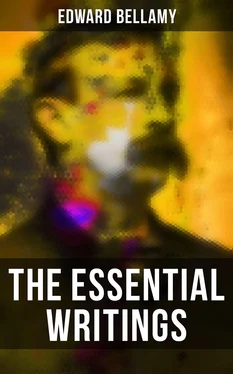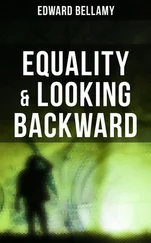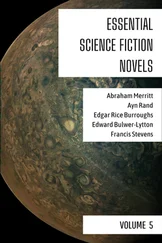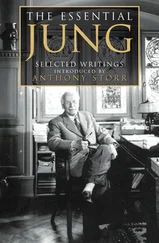“When we reflect that the ancient order of which I have been speaking was prevalent up to the end of the nineteenth century, while to us the new order which succeeded it already seems antique, even our parents having known no other, we cannot fail to be astounded at the suddenness with which a transition so profound beyond all previous experience of the race must have been effected. Some observation of the state of men’s minds during the last quarter of the nineteenth century will, however, in great measure, dissipate this astonishment. Though general intelligence in the modern sense could not be said to exist in any community at that time, yet, as compared with previous generations, the one then on the stage was intelligent. The inevitable consequence of even this comparative degree of intelligence had been a perception of the evils of society, such as had never before been general. It is quite true that these evils had been even worse, much worse, in previous ages. It was the increased intelligence of the masses which made the difference, as the dawn reveals the squalor of surroundings which in the darkness may have seemed tolerable. The key-note of the literature of the period was one of compassion for the poor and unfortunate, and indignant outcry against the failure of the social machinery to ameliorate the miseries of men. It is plain from these outbursts that the moral hideousness of the spectacle about them was, at least by flashes, fully realized by the best of the men of that time, and that the lives of some of the more sensitive and generous hearted of them were rendered well nigh unendurable by the intensity of their sympathies.
“Although the idea of the vital unity of the family of mankind, the reality of human brotherhood, was very far from being apprehended by them as the moral axiom it seems to us, yet it is a mistake to suppose that there was no feeling at all corresponding to it. I could read you passages of great beauty from some of their writers which show that the conception was clearly attained by a few, and no doubt vaguely by many more. Moreover, it must not be forgotten that the nineteenth century was in name Christian, and the fact that the entire commercial and industrial frame of society was the embodiment of the anti-Christian spirit must have had some weight, though I admit it was strangely little, with the nominal followers of Jesus Christ.
“When we inquire why it did not have more, why, in general, long after a vast majority of men had agreed as to the crying abuses of the existing social arrangement, they still tolerated it, or contented themselves with talking of petty reforms in it, we come upon an extraordinary fact. It was the sincere belief of even the best of men at that epoch that the only stable elements in human nature, on which a social system could be safely founded, were its worst propensities. They had been taught and believed that greed and self-seeking were all that held mankind together, and that all human associations would fall to pieces if anything were done to blunt the edge of these motives or curb their operation. In a word, they believed — even those who longed to believe otherwise — the exact reverse of what seems to us self-evident; they believed, that is, that the anti-social qualities of men, and not their social qualities, were what furnished the cohesive force of society. It seemed reasonable to them that men lived together solely for the purpose of overreaching and oppressing one another, and of being overreached and oppressed, and that while a society that gave full scope to these propensities could stand, there would be little chance for one based on the idea of cooperation for the benefit of all. It seems absurd to expect any one to believe that convictions like these were ever seriously entertained by men; but that they were not only entertained by our great-grandfathers, but were responsible for the long delay in doing away with the ancient order, after a conviction of its intolerable abuses had become general, is as well established as any fact in history can be. Just here you will find the explanation of the profound pessimism of the literature of the last quarter of the nineteenth century, the note of melancholy in its poetry, and the cynicism of its humor.
“Feeling that the condition of the race was unendurable, they had no clear hope of anything better. They believed that the evolution of humanity had resulted in leading it into a cul de sac, and that there was no way of getting forward. The frame of men’s minds at this time is strikingly illustrated by treatises which have come down to us, and may even now be consulted in our libraries by the curious, in which laborious arguments are pursued to prove that despite the evil plight of men, life was still, by some slight preponderance of considerations, probably better worth living than leaving. Despising themselves, they despised their Creator. There was a general decay of religious belief. Pale and watery gleams, from skies thickly veiled by doubt and dread, alone lighted up the chaos of earth. That men should doubt Him whose breath is in their nostrils, or dread the hands that moulded them, seems to us indeed a pitiable insanity; but we must remember that children who are brave by day have sometimes foolish fears at night. The dawn has come since then. It is very easy to believe in the fatherhood of God in the twentieth century.
“Briefly, as must needs be in a discourse of this character, I have adverted to some of the causes which had prepared men’s minds for the change from the old to the new order, as well as some causes of the conservatism of despair which for a while held it back after the time was ripe. To wonder at the rapidity with which the change was completed after its possibility was first entertained is to forget the intoxicating effect of hope upon minds long accustomed to despair. The sunburst, after so long and dark a night, must needs have had a dazzling effect. From the moment men allowed themselves to believe that humanity after all had not been meant for a dwarf, that its squat stature was not the measure of its possible growth, but that it stood upon the verge of an avatar of limitless development, the reaction must needs have been overwhelming. It is evident that nothing was able to stand against the enthusiasm which the new faith inspired.
“Here, at last, men must have felt, was a cause compared with which the grandest of historic causes had been trivial. It was doubtless because it could have commanded millions of martyrs, that none were needed. The change of a dynasty in a petty kingdom of the old world often cost more lives than did the revolution which set the feet of the human race at last in the right way.
“Doubtless it ill beseems one to whom the boon of life in our resplendent age has been vouchsafed to wish his destiny other, and yet I have often thought that I would fain exchange my share in this serene and golden day for a place in that stormy epoch of transition, when heroes burst the barred gate of the future and revealed to the kindling gaze of a hopeless race, in place of the blank wall that had closed its path, a vista of progress whose end, for very excess of light, still dazzles us. Ah, my friends! who will say that to have lived then, when the weakest influence was a lever to whose touch the centuries trembled, was not worth a share even in this era of fruition?
“You know the story of that last, greatest, and most bloodless of revolutions. In the time of one generation men laid aside the social traditions and practices of barbarians, and assumed a social order worthy of rational and human beings. Ceasing to be predatory in their habits, they became co-workers, and found in fraternity, at once, the science of wealth and happiness. ‘What shall I eat and drink, and wherewithal shall I be clothed?’ stated as a problem beginning and ending in self, had been an anxious and an endless one. But when once it was conceived, not from the individual, but the fraternal standpoint, ‘What shall we eat and drink, and wherewithal shall we be clothed?’— its difficulties vanished.
Читать дальше












